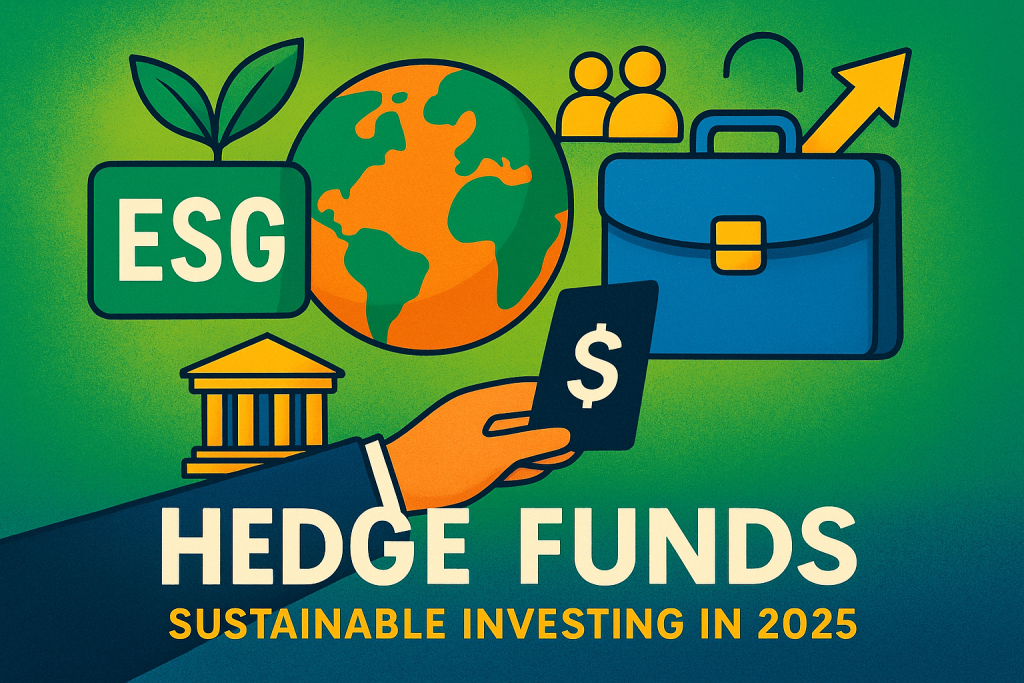Integrating ESG Principles to Drive Returns and Responsibility
In 2025, hedge funds are increasingly integrating ESG (Environmental, Social, Governance) principles into their investment strategies. Once the domain of venture capital and large index funds, sustainable investing is now gaining traction among alternative asset managers who recognize that long-term returns are closely linked to responsible business practices.
Hedge funds are adopting ESG-focused strategies in several ways:
- Screening Investments: Avoiding companies with poor environmental or social records while prioritizing businesses with strong governance and sustainability practices.
- Impact Investing: Allocating capital to ventures that generate measurable positive social or environmental outcomes, alongside financial returns.
- Active Engagement: Using their influence as shareholders to push companies toward greener operations, diversity, and transparent governance.
This shift is not just ethically motivated—it is financially strategic. Funds that embrace ESG criteria can reduce exposure to regulatory risks, reputational damage, and market volatility linked to environmental or social crises.
Industry analysts predict that by the end of 2025, ESG-focused hedge funds could see a significant increase in inflows, as investors, especially millennials and institutional clients, demand more responsible investment options. Hedge funds that fail to adapt may find themselves at a competitive disadvantage in an increasingly conscious investment landscape.
The rise of ESG in hedge funds signals a broader trend: sustainability is no longer an optional consideration—it is central to modern investment strategy, shaping not only returns but also the future of global finance.


